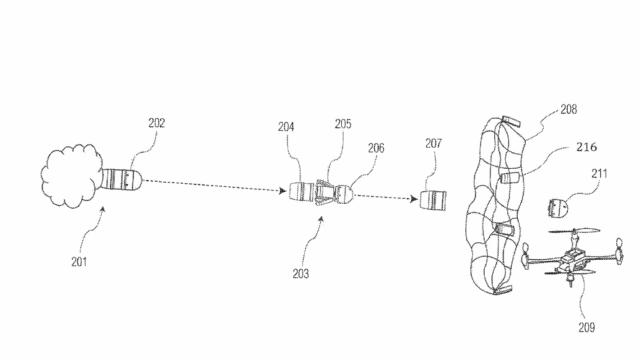Recent flight delays at airports in the U.S. and UK have given us a glimpse at the threats and the headaches that drones can cause. In the days leading up to the recent Super Bowl, the Federal Aviation Administration and the FBI warned the public repeatedly against flying drones near the stadium because the authorities view them as safety hazards and potential terrorist threats.
As there are more issues caused by ubiquitous drone use, the drone-blocking industry is growing. And government and military agencies are also involved in the development of anti-drone tech.
Echodyne — a startup that tried to test their drone radar system at the Super Bowl — is backed by Bill Gates, along with the Department of Homeland Security and the U.S. Navy.
And one of the newer concepts to come out in his space has been developed by a team of U.S. Army researchers — a 40mm grenade that deploys a net that is supposed to ensnare drones.
A patent of the drone grenade issued on Tuesday describes how such a device could work:
As the round nears the target, a signal from a control board activates a servo. The servo pulls on a central lock plunger to release a ball mechanism. This releases the ogive section, which in turn allows the ejection spring means to eject the petals and weights along with the net stowed there within.
Brian Metzger, a senior tech manager at TechLink, which handles Pentagon patent licensing, told Gizmodo the grenade “fills a gap for infantry units that don’t have a good way to take down all these modified quadcopters we’re seeing.”
He pointed out that the grenade was made “to work with the 40mm projectile launchers, a weapon platform that’s been used for decades.”
According to the patent, tests show that this device would be more effective than other net-related techniques—such as using a larger drone with a net, which requires a skilled pilot, or using a drone with a net-shooter, which would “be too heavy and have a limited range.”
Metzger believes these net grenades could be launching soon. “We’re in the process of finding manufacturers who can licence the patent and start supplying it,” he said. “But the technology is at a high stage of development so it shouldn’t be too long before we see it in production.”
